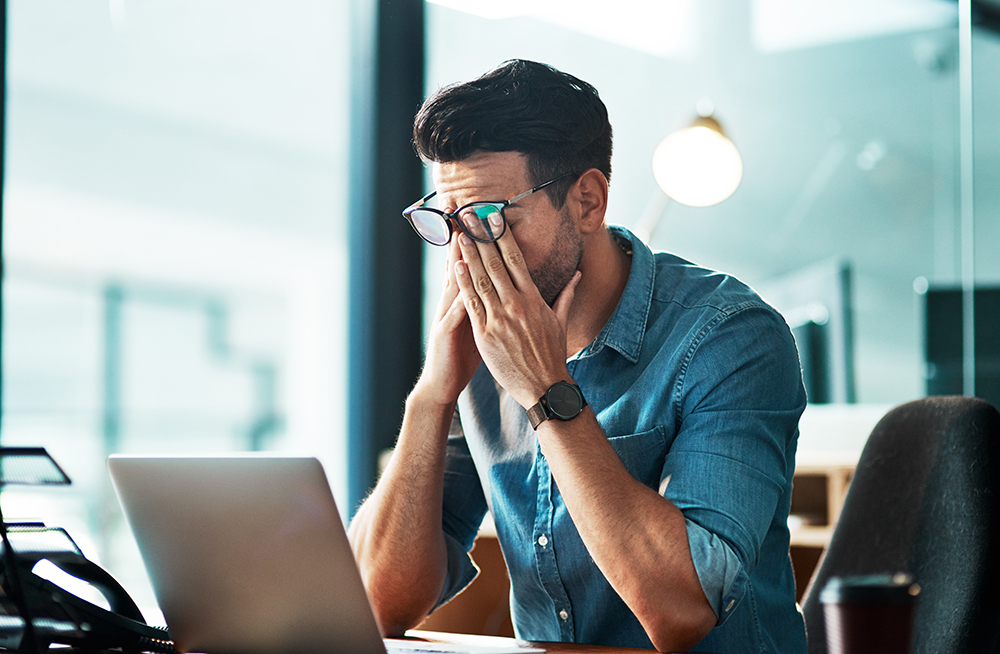April is Stress Awareness Month, making it the perfect time to unpack a question many people ask – what’s the difference between anxiety and stress? While these two conditions share many symptoms and triggers, they are not the same. Understanding the distinctions can help you understand when it’s time to address them.
What Is Stress?
Stress is a natural physical and emotional response to a challenge. It’s your body’s way of reacting to demanding situations like looming deadlines, financial worries, or family conflict.
Short-term stress can be beneficial, but when it becomes chronic, it can start taking a severe toll on your mental and physical health.
Chronic stress symptoms include:
- Muscle tension and headaches
- Difficulty sleeping or staying asleep
- Irritability or frustration
- Trouble concentrating
- Upset stomach or digestive issues
- Elevated blood pressure and heart rate
Health risks of untreated chronic stress:
- Weakened immune system
- Heart disease
- Weight gain or loss
- Sleep disorders
- High risk for substance abuse and burnout
What Is Anxiety?
Unlike stress, which is a reaction to an external situation, anxiety is an internal condition that can persist even when there’s no obvious reason to feel concerned. It qualifies as a mental health disorder when your symptoms become constant, excessive, and interfere with daily life.
Symptoms of anxiety disorders:
- Excessive worry that feels impossible to control
- Restlessness or feeling on edge
- Racing thoughts
- Panic attacks
- Shortness of breath or rapid heartbeat
- Avoidance of certain people or situations
- Difficulty managing responsibilities
The DSM-TR-5 outlines the criteria for several different types of anxiety disorders, including generalized anxiety disorder, social anxiety, panic disorder, and PTSD – each of which requires specialized treatment.
When Men Turn to Substances to Cope
Stress and anxiety are valid emotional experiences, but chronic anxiety can be debilitating, and long-term stress can lead to serious health consequences if you ignore it.
Unfortunately, many men don’t know how to ask for help, or they mistakenly believe they must suppress their emotions. As a result, they often self-medicate with alcohol or drugs to take the edge off or escape.
Patterns include:
- Drinking to unwind after a stressful day
- Using drugs to manage insomnia
- Numbing your emotions to avoid confrontation or vulnerability
- Escalating substance use over time as tolerance builds
These short-term solutions offer temporary relief but usually lead to substantial problems, including addiction, relationship breakdowns, legal and financial trouble, and worsening mental health.
Healthier Ways to Cope With Stress and Anxiety
There are effective, sustainable ways to manage stress and anxiety – but it takes awareness and action. Here are some things you can do instead of abusing drugs or alcohol.
- Exercise regularly to release tension and boost your mood.
- Practice deep breathing or meditation to calm your nervous system.
- Stick to a consistent sleep routine.
- Talk to a therapist or counselor about your thoughts and feelings.
- Set boundaries and avoid overcommitting.
- Build a support network of friends and family who understand your goals.
When to Seek Help
It’s time to reach out if stress or anxiety affects your ability to function, maintain relationships, or stay sober. Legacy Texas helps our clients build resilience, emotional awareness, and healthier coping mechanisms. We specialize in working with men who have co-occurring mental health challenges and substance use disorders.
Our structured 90-day residential program focuses on:
- Treating co-occurring conditions like anxiety, PTSD, and depression
- Building resilience and practical life skills
- Preventing relapse by teaching you to recognize and manage triggers
- Strengthening accountability and community
Stress and Anxiety Are Treatable
Stress and anxiety are part of life, but they don’t have to define it. If you’ve found yourself using alcohol or drugs to cope, or if you’re struggling to break the cycle of anxiety and stress, contact us today to learn more about how our men’s-only program can help you build a legacy of strength, clarity, and long-term recovery.

